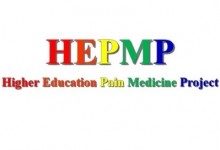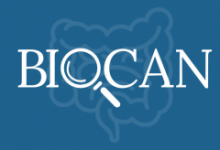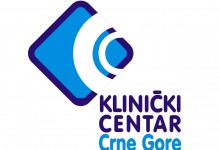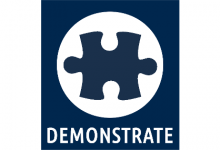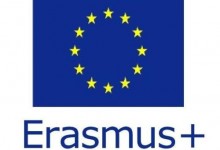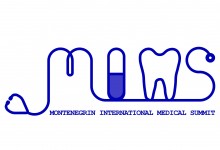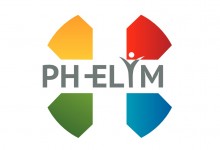Faculty of Medicine / PHARMACY / BIOSTATISTICS
| Course: | BIOSTATISTICS/ |
| Course ID | Course status | Semester | ECTS credits | Lessons (Lessons+Exercises+Laboratory) |
| 7927 | Obavezan | 1 | 10 | 2+2+0 |
| Programs | PHARMACY |
| Prerequisites | |
| Aims | |
| Learning outcomes | |
| Lecturer / Teaching assistant | |
| Methodology |
| Plan and program of work | |
| Preparing week | Preparation and registration of the semester |
| I week lectures | |
| I week exercises | |
| II week lectures | |
| II week exercises | |
| III week lectures | |
| III week exercises | |
| IV week lectures | |
| IV week exercises | |
| V week lectures | |
| V week exercises | |
| VI week lectures | |
| VI week exercises | |
| VII week lectures | |
| VII week exercises | |
| VIII week lectures | |
| VIII week exercises | |
| IX week lectures | |
| IX week exercises | |
| X week lectures | |
| X week exercises | |
| XI week lectures | |
| XI week exercises | |
| XII week lectures | |
| XII week exercises | |
| XIII week lectures | |
| XIII week exercises | |
| XIV week lectures | |
| XIV week exercises | |
| XV week lectures | |
| XV week exercises |
| Student workload | |
| Per week | Per semester |
| 10 credits x 40/30=13 hours and 20 minuts
2 sat(a) theoretical classes 0 sat(a) practical classes 2 excercises 9 hour(s) i 20 minuts of independent work, including consultations |
Classes and final exam:
13 hour(s) i 20 minuts x 16 =213 hour(s) i 20 minuts Necessary preparation before the beginning of the semester (administration, registration, certification): 13 hour(s) i 20 minuts x 2 =26 hour(s) i 40 minuts Total workload for the subject: 10 x 30=300 hour(s) Additional work for exam preparation in the preparing exam period, including taking the remedial exam from 0 to 30 hours (remaining time from the first two items to the total load for the item) 60 hour(s) i 0 minuts Workload structure: 213 hour(s) i 20 minuts (cources), 26 hour(s) i 40 minuts (preparation), 60 hour(s) i 0 minuts (additional work) |
| Student obligations | |
| Consultations | |
| Literature | |
| Examination methods | |
| Special remarks | |
| Comment |
| Grade: | F | E | D | C | B | A |
| Number of points | less than 50 points | greater than or equal to 50 points and less than 60 points | greater than or equal to 60 points and less than 70 points | greater than or equal to 70 points and less than 80 points | greater than or equal to 80 points and less than 90 points | greater than or equal to 90 points |
Faculty of Medicine / PHARMACY / MEDICAL INFORMATICS
| Course: | MEDICAL INFORMATICS/ |
| Course ID | Course status | Semester | ECTS credits | Lessons (Lessons+Exercises+Laboratory) |
| 7928 | Obavezan | 1 | 10 | 3+1+0 |
| Programs | PHARMACY |
| Prerequisites | |
| Aims | |
| Learning outcomes | |
| Lecturer / Teaching assistant | |
| Methodology |
| Plan and program of work | |
| Preparing week | Preparation and registration of the semester |
| I week lectures | |
| I week exercises | |
| II week lectures | |
| II week exercises | |
| III week lectures | |
| III week exercises | |
| IV week lectures | |
| IV week exercises | |
| V week lectures | |
| V week exercises | |
| VI week lectures | |
| VI week exercises | |
| VII week lectures | |
| VII week exercises | |
| VIII week lectures | |
| VIII week exercises | |
| IX week lectures | |
| IX week exercises | |
| X week lectures | |
| X week exercises | |
| XI week lectures | |
| XI week exercises | |
| XII week lectures | |
| XII week exercises | |
| XIII week lectures | |
| XIII week exercises | |
| XIV week lectures | |
| XIV week exercises | |
| XV week lectures | |
| XV week exercises |
| Student workload | |
| Per week | Per semester |
| 10 credits x 40/30=13 hours and 20 minuts
3 sat(a) theoretical classes 0 sat(a) practical classes 1 excercises 9 hour(s) i 20 minuts of independent work, including consultations |
Classes and final exam:
13 hour(s) i 20 minuts x 16 =213 hour(s) i 20 minuts Necessary preparation before the beginning of the semester (administration, registration, certification): 13 hour(s) i 20 minuts x 2 =26 hour(s) i 40 minuts Total workload for the subject: 10 x 30=300 hour(s) Additional work for exam preparation in the preparing exam period, including taking the remedial exam from 0 to 30 hours (remaining time from the first two items to the total load for the item) 60 hour(s) i 0 minuts Workload structure: 213 hour(s) i 20 minuts (cources), 26 hour(s) i 40 minuts (preparation), 60 hour(s) i 0 minuts (additional work) |
| Student obligations | |
| Consultations | |
| Literature | |
| Examination methods | |
| Special remarks | |
| Comment |
| Grade: | F | E | D | C | B | A |
| Number of points | less than 50 points | greater than or equal to 50 points and less than 60 points | greater than or equal to 60 points and less than 70 points | greater than or equal to 70 points and less than 80 points | greater than or equal to 80 points and less than 90 points | greater than or equal to 90 points |
Faculty of Medicine / PHARMACY / SCIENTIFIC RESEARCH METHODOLOGY
| Course: | SCIENTIFIC RESEARCH METHODOLOGY/ |
| Course ID | Course status | Semester | ECTS credits | Lessons (Lessons+Exercises+Laboratory) |
| 7929 | Obavezan | 1 | 10 | 2+2+0 |
| Programs | PHARMACY |
| Prerequisites | there is no conditioning |
| Aims | Acquiring knowledge and skills in the field of scientific research methodology |
| Learning outcomes | After completing the one-semester course and passing the exam in the subject of scientific research methodology, the student of doctoral studies should have the following learning outcomes: 1. Knows the general methodological principles of scientific research 2. Knows the types of scientific research and their basic characteristics. 3. Knows the ethical norms in biomedical research 4. Knows the basic elements of the application of evidence-based medicine 5. Knows the concepts of connection and causality, as well as the criteria for causality 6. Knows how to calculate indicators of morbidity and mortality 8. Knows how to describe the types of epidemiological studies and their advantages and disadvantages 9. Knows how to distinguish types of samples and their application 10. Knows different types of measurement errors - biases 11. Knows the principles of planning and reporting a scientific research project. |
| Lecturer / Teaching assistant | prof. dr Dragan Laušević, prof. dr Boban Mugoša |
| Methodology | Lectures, exercises, consultations, seminar papers, presentation in front of the group, |
| Plan and program of work | |
| Preparing week | Preparation and registration of the semester |
| I week lectures | General methodology of scientific research in medicine |
| I week exercises | They follow lectures through examples from domestic and foreign practice |
| II week lectures | Classification of scientific research - types of research |
| II week exercises | They follow lectures through examples from domestic and foreign practice |
| III week lectures | Evidence-based medicine |
| III week exercises | They follow lectures through examples from domestic and foreign practice |
| IV week lectures | Important ethical norms in biological and medical research |
| IV week exercises | They follow lectures through examples from domestic and foreign practice |
| V week lectures | Concept of connection and causation |
| V week exercises | They follow lectures through examples from domestic and foreign practice |
| VI week lectures | Measures of frequency of health disorders |
| VI week exercises | They follow lectures through examples from domestic and foreign practice |
| VII week lectures | Standardisation of morbidity and mortality indicators (direct and indirect |
| VII week exercises | They follow lectures through examples from domestic and foreign practice |
| VIII week lectures | Sample (types and size of sample) |
| VIII week exercises | They follow lectures through examples from domestic and foreign practice |
| IX week lectures | Descriptive studies |
| IX week exercises | They follow lectures through examples from domestic and foreign practice |
| X week lectures | Basic characteristics of different types of observational analytical studies (cohort, case and control studies, cross-sectional studies |
| X week exercises | They follow lectures through examples from domestic and foreign practice |
| XI week lectures | Interventional (experimental) studies |
| XI week exercises | They follow lectures through examples from domestic and foreign practice |
| XII week lectures | Experiments on animals in laboratory conditions |
| XII week exercises | They follow lectures through examples from domestic and foreign practice |
| XIII week lectures | Variability and measurement errors (bias) |
| XIII week exercises | They follow lectures through examples from domestic and foreign practice |
| XIV week lectures | Screening |
| XIV week exercises | They follow lectures through examples from domestic and foreign practice |
| XV week lectures | Preparation and reporting of a scientific research project |
| XV week exercises | They follow lectures through examples from domestic and foreign practice |
| Student workload | In the semester Classes and final exam: (13.33 hours) x 16 = 213.28 hours Necessary preparations before the beginning of the semester (administration, registration, certification): (13.33 hours) x 2 = 26.66 hours Total workload for the course: 10 x 30 = 300 hours Load structure: 234.56 hours (teaching and final exam) + 29.32 hours (preparation) + 42 hours (additional work) |
| Per week | Per semester |
| 10 credits x 40/30=13 hours and 20 minuts
2 sat(a) theoretical classes 0 sat(a) practical classes 2 excercises 9 hour(s) i 20 minuts of independent work, including consultations |
Classes and final exam:
13 hour(s) i 20 minuts x 16 =213 hour(s) i 20 minuts Necessary preparation before the beginning of the semester (administration, registration, certification): 13 hour(s) i 20 minuts x 2 =26 hour(s) i 40 minuts Total workload for the subject: 10 x 30=300 hour(s) Additional work for exam preparation in the preparing exam period, including taking the remedial exam from 0 to 30 hours (remaining time from the first two items to the total load for the item) 60 hour(s) i 0 minuts Workload structure: 213 hour(s) i 20 minuts (cources), 26 hour(s) i 40 minuts (preparation), 60 hour(s) i 0 minuts (additional work) |
| Student obligations | Regular attendance of classes and exercises, preparation of a seminar paper |
| Consultations | |
| Literature | 1. Metodologija naučnog saznanja I – Kako stvoriti naučno delo u biomedicini. Jovan Đ. Savić, drugo izdanje, 2013, DATASTATUS, Beograd 2. Oxford Handbook of Clinical and Healthcare Research. Editors: Sumantra Ray, Sue Fitzpatrick, Rajna Golubic, Suzan Fisher, Oxford University press, 2016 3. Internet sources |
| Examination methods | Up to 30 points - regular attendance and activity in classes; up to 20 points - seminar paper; up to 50 points - an exam in the form of a test. A passing grade is obtained if a minimum of 50 points is accumulated |
| Special remarks | |
| Comment |
| Grade: | F | E | D | C | B | A |
| Number of points | less than 50 points | greater than or equal to 50 points and less than 60 points | greater than or equal to 60 points and less than 70 points | greater than or equal to 70 points and less than 80 points | greater than or equal to 80 points and less than 90 points | greater than or equal to 90 points |
Faculty of Medicine / PHARMACY / METODOLOGIJA U ISTRAŽIVANJU SOCIJALNE FARMACIJE
| Course: | METODOLOGIJA U ISTRAŽIVANJU SOCIJALNE FARMACIJE/ |
| Course ID | Course status | Semester | ECTS credits | Lessons (Lessons+Exercises+Laboratory) |
| 11544 | Obavezan | 2 | 10 | 4++0 |
| Programs | PHARMACY |
| Prerequisites | None |
| Aims | Acquiring knowledge about the behavioral aspects of pharmacy and the influence of society on pharmaceutical practice. Mastery of methods for researching public health, social factors influencing health or disease incidence, and the use of medications |
| Learning outcomes | Application of knowledge in social pharmacy and methods for research in social pharmacy. The ability to critically evaluate domestic and international health databases and assess attitudes, beliefs, and behaviors related to health and illness. Critical thinking skills in the field of public health. |
| Lecturer / Teaching assistant | Zorica Potpara, PhD, Assoc. Prof |
| Methodology | Interactive lectures, case analyses, workshops, panel discussions, seminar projects |
| Plan and program of work | |
| Preparing week | Preparation and registration of the semester |
| I week lectures | Professional development of pharmacy – economic and health aspects (clinical, social, economic) |
| I week exercises | Discussions on the development of pharmacy |
| II week lectures | Pharmaceutical industry and healthcare |
| II week exercises | Discussions on drug production locally and in the surrounding region |
| III week lectures | Standardization and accreditation in health and pharmacy |
| III week exercises | Analysis of standards in pharmacy |
| IV week lectures | Research methods in social pharmacy |
| IV week exercises | Literature review |
| V week lectures | Measurement methods and tools for quality management in pharmaceutical and health systems |
| V week exercises | Workshops/Seminars on the previous topic |
| VI week lectures | Health systems and organizational systems of healthcare |
| VI week exercises | Analysis of healthcare systems in the environment |
| VII week lectures | Good practices in pharmacy |
| VII week exercises | Discussions on good practices in pharmacy |
| VIII week lectures | Regulation in the field of drug advertising |
| VIII week exercises | Literature review on drug advertising regulations |
| IX week lectures | Role of pharmacists in rational drug use |
| IX week exercises | Case analysis on rational drug use |
| X week lectures | Pharmaceutical health services; analysis of structure-process-outcome correlations |
| X week exercises | Workshop/Seminar on the previous lecture topic |
| XI week lectures | Development of pharmaceutical health services and quality indicators |
| XI week exercises | Seminar project defense |
| XII week lectures | Standardized quality management systems (ISO 9001; ISO 22000; ISO 17025; ISO 13845) |
| XII week exercises | Case analysis |
| XIII week lectures | Key performance indicators (SMART Criteria) |
| XIII week exercises | Case presentation |
| XIV week lectures | Methodology for quality evaluation and improvement |
| XIV week exercises | Workshop on the topic related to the previous lecture |
| XV week lectures | National pharmaceutical regulations and legislation |
| XV week exercises | Literature review |
| Student workload | Teaching and final exam: (13.33 hours) x 16 = 213.28 hours. Necessary preparations before the beginning of the semester (administration, enrollment, verification): (13.33 hours) x 2 = 26.66 hours. Total workload for the course: 10 x 30 = 300 hours. Workload structure: 234.56 hours (teaching and final exam) + 29.32 hours (preparation) + 42 hours (overtime) |
| Per week | Per semester |
| 10 credits x 40/30=13 hours and 20 minuts
4 sat(a) theoretical classes 0 sat(a) practical classes 0 excercises 9 hour(s) i 20 minuts of independent work, including consultations |
Classes and final exam:
13 hour(s) i 20 minuts x 16 =213 hour(s) i 20 minuts Necessary preparation before the beginning of the semester (administration, registration, certification): 13 hour(s) i 20 minuts x 2 =26 hour(s) i 40 minuts Total workload for the subject: 10 x 30=300 hour(s) Additional work for exam preparation in the preparing exam period, including taking the remedial exam from 0 to 30 hours (remaining time from the first two items to the total load for the item) 60 hour(s) i 0 minuts Workload structure: 213 hour(s) i 20 minuts (cources), 26 hour(s) i 40 minuts (preparation), 60 hour(s) i 0 minuts (additional work) |
| Student obligations | Attendance in theoretical classes is mandatory. Preparation and presentation of seminars are mandatory. |
| Consultations | |
| Literature | 1. Donyai Parastou. Social and Cognitive Pharmacy: Theory and Case Studies. London: Pharmaceutical Press; 2012. 2. Paul Bissell, Janine Morgall Traulsen. Sociology and Pharmacy Practice. London: Pharmaceutical Press; 2005. 3.N Rickles & N Weirtheimer (eds). Social and Behavioral Aspects of Pharmacy Practice. New York: Haworth Press; 2009. 4. Harding G, Nettleton S, Taylor K. Social Pharmacy: Innovation and Development. London: The Pharmaceutical Press; 1994. 5. Gledović Z, Janković S, Jarebinski M, Marković-Denić Lj, Pekmezović T, Šipetić-Grujičić S, Vlajinac H. In: Vlajinac H, Jarebinski M (editors). Epidemiology. Belgrade: Faculty of Medicine, University of Belgrade, 2006 |
| Examination methods | Attendance in theoretical classes: (0-10) points Seminars and presentation: (0-40) points Final exam: (0-50) points |
| Special remarks | None. |
| Comment |
| Grade: | F | E | D | C | B | A |
| Number of points | less than 50 points | greater than or equal to 50 points and less than 60 points | greater than or equal to 60 points and less than 70 points | greater than or equal to 70 points and less than 80 points | greater than or equal to 80 points and less than 90 points | greater than or equal to 90 points |


